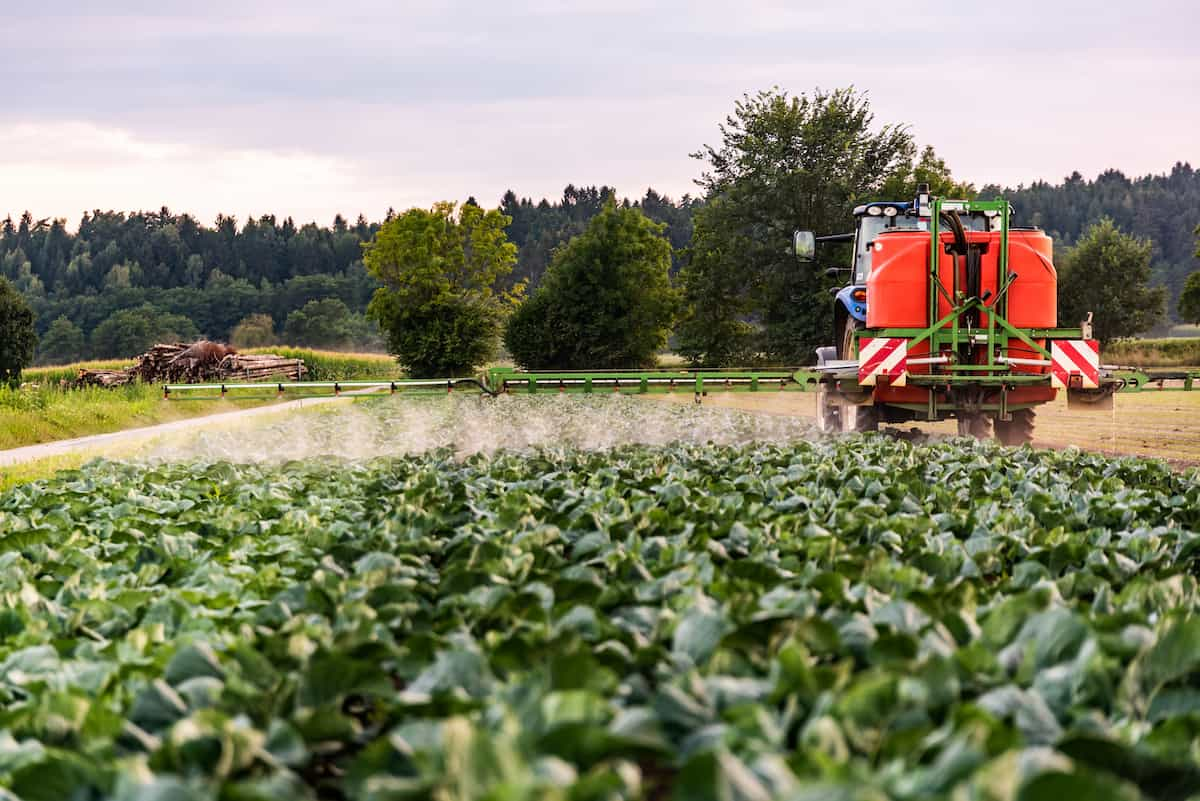Brassinolide is a plant hormone that significantly promotes plant growth and increases yield in agriculture. It is naturally occurring and has been shown to improve plant growth by increasing cell division, elongation, and differentiation. Brassinolide binds to specific receptors in plant cells, triggering a cascade of signaling events that stimulate plant growth and development.

It also helps plants resist stress from harsh environmental conditions like drought, heat, and cold. In agriculture, Brassinolide has numerous applications. It can promote seed germination, enhance root development, increase flower and fruit production, and improve crop quality. It is also used to increase the yield of various crops, including rice, wheat, corn, and soybeans.
Role of Brassinolide in Promoting Plant Growth and Yield
What is Brassinolide?
Brassinolide is a naturally occurring plant hormone that regulates a plant’s growth and development and immunity against diseases and pests. It is a type of steroid hormone known as a “brassinosteroid” and is found in high concentrations in the pollen, immature seeds, flowers, and roots of plants.
Scientific Information on Brassinolide
Scientists have been researching Brassinolide for years as a natural fertilizer for agricultural plants. Plants naturally produce the hormone to help them grow, create pollen, set flowers, fruits, and seeds, and resist diseases or pests. When extra brassinolide hormone is introduced to other plants, it has been found to affect the growth and resilience of the test plants positively. Research on Brassinolide was originally done with rapeseed plants (Brassica napus), and the hormone was isolated and extracted.
The hormone was then introduced to other plants through various methods to study its effect on their growth and resistance. Results showed that the test plants that received extra Brassinolide had larger, healthier plants with higher yields of fruit or seeds. Additionally, these plants showed more resistance to pests, diseases, extreme heat, drought, extreme cold, nutrient deficiencies, and salt.
Brassinolide has been shown to have potential as a natural fertilizer for agricultural plants, helping them to grow healthier and more resilient against environmental stressors. Its natural occurrence in many types of plants makes it an attractive option for use in sustainable agriculture.
Mechanism: How does Brassinolide Works on Plants?
- Brassinolide is a plant hormone that regulates the growth and development of plants.
- It helps plants grow bigger by stimulating cell elongation and division.
- Brassinolide also helps plants produce more seeds and fruits.
- It boosts plant immunity and resistance to environmental stressors like drought, heat, and cold.
- Brassinolide is not harmful to humans, animals, or insects that consume plants treated with it.
- It does not leave any harmful residues in the soil or water table.
- Brassinolide is available in powdered or liquid form and is mainly used in agriculture fields growing grains.
- It can be applied to plants naturally through seed inoculation, watering roots, or foliar feeding.
- Brassinolide can help speed up the germination process in seeds.
Efficacy, Benefits, and Function of Brassinolide
Promote Cell Elongation and Division
Brassinolide is a plant hormone that promotes cell elongation and division in dicotyledonous plants. Even at low concentrations, it can significantly elongate the hypocotyl, epicotyl, and monocot floral axis and accelerate cell division, expand, and even crack the internode of bean seedlings. It can increase the activity of DNA and RNA polymerases, as well as the content of DNA and protein, while stimulating ATPase activity and prompting the plasma membrane to secrete H+ to the cell wall, relaxing it and promoting cell elongation, accelerating plant growth, and increasing yield.
Promote Photosynthesis
Brassinolide is a plant growth regulator that can enhance photosynthesis by increasing the activity of RuBP carboxylase, resulting in a more efficient fixation of CO2. This leads to darker leaves, larger leaf areas, thicker leaves, and improved leaf surface quality, promoting plant growth and increasing crop yield. Photosynthesis is essential for producing organic matter in plants, and using Brassinolide can help maximize this process.
In case you missed it: The Power of Nano Copper: 10 Benefits for Improving Agriculture and Plant Health

Promote Pollen Fertilization, Fruit, and Seed Set
Brassinolides helps in the fertilization process by increasing the content of free Brassinolide in pollen cells during the early stage of pollen development. Exogenous brassinolides can stimulate pollen tube elongation, making it easier for fertilization to occur. Furthermore, they can also enhance the production of male flowers and induce flower formation, leading to an increase in fruit and seed setting rates.
Enhance the Stress Resistance of Plants
- Low-temperature stress: Increases the seed-setting rate of rice varieties by 40.1% at low temperatures. It improves rice’s physiological metabolism and promotes rice organ growth and development.
- High-temperature stress: Increases leaf chlorophyll and protein content, superoxide dismutase (SOD), and peroxidase (POD) activities of heat-sensitive rice varieties. Reduces leaf malondialdehyde content and electrolyte extravasation rate.
- Saline-alkali stress: Helps seeds maintain a high germination rate in a high concentration of NaCl. Preserves the structure of barley leaves.
- Drought stress: Improves the growth of sugar beet and other crops in a drought environment.
- Disease resistance: Reduces the damage of certain plant diseases, such as rice sheath blight, cucumber gray mold, and tomato late blight. It can induce the expression of disease-resistance genes, enhancing the disease resistance of plants.
Impact of Phytotoxicity on Plants
Brassinolides have been shown to mitigate the phytotoxicity of herbicides on plants. Studies have found that a certain concentration of Brassinolide can alleviate the phytotoxicity of herbicides on rice and corn. Still, the concentration should be carefully monitored as high concentrations may worsen the damage. Brassinolide can promote the metabolism of herbicides in plants, reduce the inhibition of photosynthesis, and act as a safener to alleviate phytotoxicity.
Brassinolide Applications in Agriculture
- Brassinolide can help plants cope with environmental stressors like drought, heat, and cold by enhancing their resistance and immunity.
- It can improve the quality of fruits and vegetables by increasing their sugar content, nutritional value, and shelf life.
- Brassinolide can be applied to crops at different stages of their growth, from seed germination to fruit maturation.
- Brassinolide can enhance the growth and yield of various crops, including rice, wheat, maize, tomato, cucumber, and soybean.
Challenges in Using Brassinolide in Agriculture
- One challenge is the cost of producing and applying the hormone, which can be prohibitively expensive for many farmers. Another challenge is the potential for negative environmental and human health impacts if used improperly.
- In addition, there may be regulatory hurdles to overcome before the widespread use of Brassinolide in agriculture is allowed.
- More research is needed to commercialize the effects of Brassinolide on different crops and in different growing conditions, as well as its long-term impacts on soil health and ecosystem stability.
In case you missed it: Benefits of Poultry Manure Fertilizer in Agriculture: Uses, When and How to Apply

Conclusion
Brassinolide is a good plant hormone that can promote plant growth and yield in agriculture. Its mechanisms of action include enhancing photosynthesis, improving nutrient uptake, and increasing stress tolerance. However, its practical applications still need to be improved by challenges such as cost, regulation, and environmental impacts.
- Feed Your Flock for Less: Top 10 Tips to Save on Chicken Feed
- Ultimate Guide to Ossabaw Island Hog: Breeding, Raising, Diet, and Care
- Hatching Answers: The Top 10 Reasons Your Chickens Aren’t Laying Eggs
- Eggs and Economics: Breaking Down the Cost of Raising Backyard Chickens
- Defend Your Greens: Proven Methods to Keep Iguanas Out of Your Garden
- Ultimate Guide to Cinnamon Queen Chicken: A Comprehensive Guide for Beginners
- Ultimate Guide to California Tan Chicken: Breeding, Raising, Diet, Egg-Production and Care
- Ultimate Guide to Marsh Daisy Chicken: Breeding, Raising, Diet, and Care
- 10 Types of Chicken Farming Businesses You Can Start for Profits